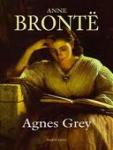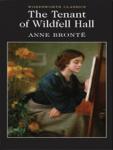Agnes Grey

Author:Anne Bronte
Tag:Anne BronteAgnes GreyEnglish
Agnes Grey is the debut novel of English author Anne Brontë, first published in December 1847, and republished in a second edition in 1850. The novel follows Agnes Grey, a governess, as she works in several bourgeois families. Scholarship and comments by Anne's sister Charlotte Brontë suggest the novel is largely based on Anne Brontë's own experiences as a governess for five years. Like her sister Charlotte's novel Jane Eyre, it addresses what the precarious position of governess entailed and how it affected a young woman.
Agnes Grey is the daughter of a minister, whose family comes to financial ruin. Desperate to earn money to care for herself, she takes one of the few jobs allowed to respectable women in the early Victorian era, as a governess to the children of the wealthy. In working with two different families, the Bloomfields and the Murrays, she comes to learn about the troubles that face a young woman who must try to rein in unruly, spoiled children for a living, and about the ability of wealth and status to destroy social values. After her father's death Agnes opens a small school with her mother and finds happiness with a man who loves her for herself. By the end of the novel they have three children, Edward, Agnes and Mary.
The Tenant of Wildfell Hall

Author:Anne Bronte
Tag:Anne BronteEnglish
The Tenant of Wildfell Hall is the second and final novel by English author Anne Brontë, published in 1848 under the pseudonym Acton Bell. Probably the most shocking of the Brontës' novels, this novel had an instant phenomenal success but after Anne's death her sister Charlotte prevented its re-publication.
The novel is framed as a letter from Gilbert Markham to his friend and brother-in-law about the events leading to his meeting his wife.
A mysterious young widow arrives at Wildfell Hall, an Elizabethan mansion which has been empty for many years, with her young son and servant. She lives there under an assumed name, Helen Graham in strict seclusion, and very soon finds herself the victim of local slander. Refusing to believe anything scandalous about her, Gilbert Markham, a young farmer, discovers her dark secrets. In her diary Helen writes about her husband's physical and moral decline through alcohol and the world of debauchery and cruelty from which she has fled. This novel of marital betrayal is set within a moral framework tempered by Anne's optimistic belief in universal salvation.
May Sinclair, in 1913, said that the slamming of Helen's bedroom door against her husband reverberated throughout Victorian England. In escaping from her husband, she violates not only social conventions, but also English law.